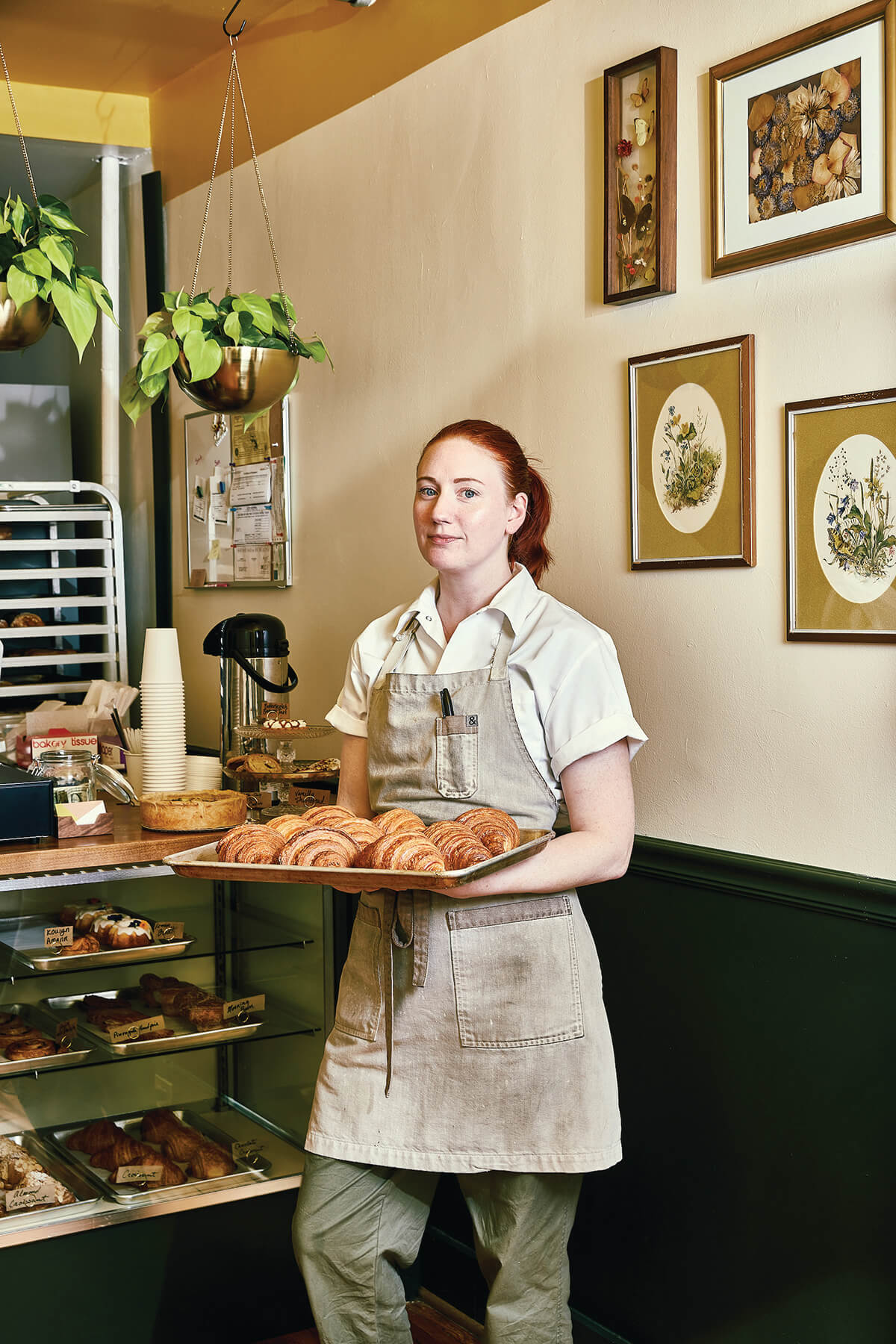Food & Drink
At Maillard Pastries in Hampden, Baking is Both Art and Science
Fascinated by "how things work," pastry chef Caitlin Kiehl scratch-bakes everything from morning buns to chocolate-chip cookies to scones.

Caitlin Kiehl first became smitten with baking while making an Oreo cheesecake in a high-school cooking class at the age of 15.
“By the third week of class, I was like, ‘I’m going to own a restaurant someday,’” says Kiehl, laughing. “That cheesecake was super easy and the most delicious thing I’d ever eaten. I was like, ‘So this is what I’ll do.’”
After high school, Kiehl studied pastry at a culinary school in Lancaster, PA, then interned at a chocolate shop with a pastry chef. Employment soon followed, with stops along the way at the famed Proof Bakery in Los Angeles and, eventually, Charleston and Woodberry Kitchen in Baltimore.
In early March, Kiehl opened Maillard Pastries, a snug storefront in Hampden, where, after arriving at 3 a.m. (and toiling until 8 p.m.), Kiehl makes everything from morning buns to chocolate-chip cookies to scones.
“People here care about small bakers and restaurants,” says Kiehl. “I am still shocked that people come in and buy so much.”
What inspired the name Maillard?
I love learning about how things work and why they work. I have a big book on the scientific reasons behind things. I was paging through a chocolate book, and they were breaking down chemical reactions and Maillard is one of them that spoke to me. [In a Maillard reaction], the sugars and amino acids react with the heat where you get that beautiful brown color, which is a big part of what makes croissants look so delicious.
Why baking?
My dad is an engineer and I think that I have that kind of mindset. I like to know how things work, why they work; I need to know all the things about all the things. That’s a big difference between bakers and cooks. Bakers do things more by feel.
With so many bakeries here, what did you want your niche to be?
The bakery I first learned to make croissants at was Proof. I enjoyed working there. The vibe there was like, “If there’s something you want to try, we will try it and see if it works.” It was mostly women who worked there, and it was really supportive, collaborative, and respectful—I’ve modeled my whole baking businesses off that.
What should a first-timer get?
If they get here early enough, they should get chocolate croissants and almond croissants—we sell out so fast. And get the chocolate-chip cookies. They’re my favorite thing. I eat at least one a day.
What’s the most labor-intensive product to make?
The croissants are especially time-consuming. I make the dough at night, and it sits overnight. I laminate it the next day. They get sheeted and shaped and sit overnight again. Then I proof for two hours and then I bake them. It’s a three-day process and takes up a huge portion of every day. I’ve only ever been a scratch baker, but I sometimes forget to pro- mote that. I’ve always had a commitment to that quality—it makes a difference.